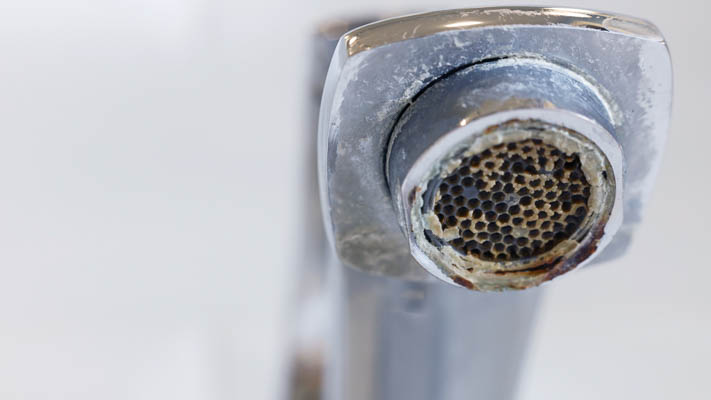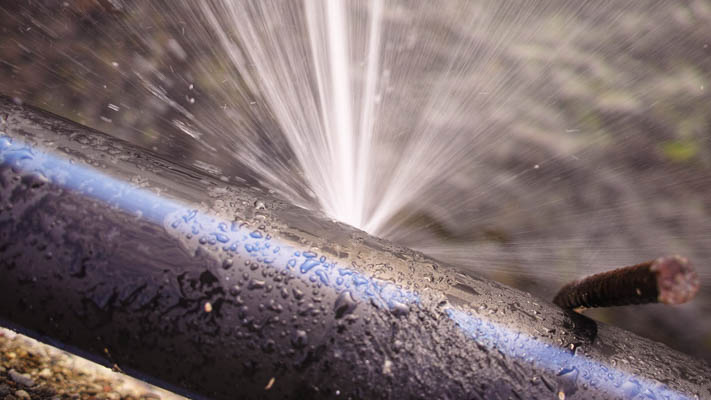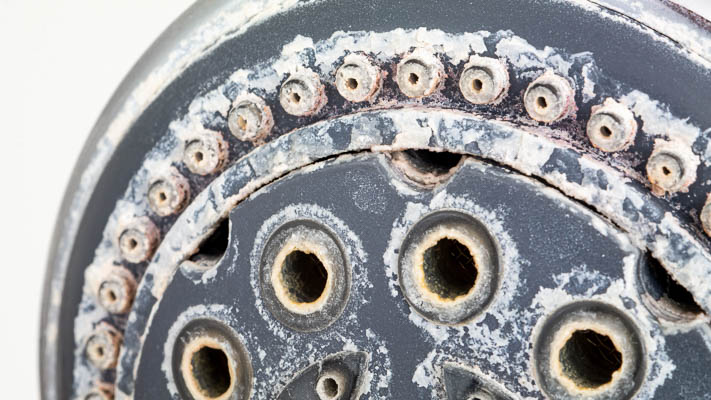What Is Hard Water?
Hard water is water that has high mineral content, typically in the form of calcium and magnesium. This is in contrast to soft water, which has a low concentration of these minerals. Hard water can occur naturally as water moves through soil and rock, absorbing minerals that are then carried along into the water supply.
Despite common misconceptions, water hardness and pH measure different things. Hardness refers to mineral content, whereas pH indicates how acidic or alkaline the water is. So, hard water can have any pH value.
The U.S. Geological Survey (USGS) classifies water hardness as follows (in mg of calcium carbonate):
- Soft: 0 - 60 mg/L (milligrams per liter)
- Moderately hard: 61 - 120 mg/L
- Hard: 121 - 180 mg/L
- Very hard: Over 180 mg/L
In the United States, over 85% of water sources have hard water. States such as Nevada, Texas, and California experience particularly hard water due to their reliance on groundwater and river sources, which can accumulate minerals that eventually find their way into the municipal water supply.
You can usually find the water hardness of your water supply from your municipal water utility. Inexpensive home water test kits can also be found at most hardware stores. Any water that is above 120 mg/L of calcium carbonate is a cause for concern.
Does Hard Water Damage Plumbing Systems?
Hard water causes the accumulation of limescale, forming a yellow or white flaky crusty layer on surfaces such as faucets, showerheads, and pipes.
If you can observe the effects of hard water on the exterior of your pipes, it is highly likely that limescale buildup is also occurring on the interior. Over time, these calcium deposits can accumulate, leading to reduced water flow, clogged pipes, and decreased efficiency of water-utilizing appliances.

When hard water flows through copper pipes for an extended period, the accumulated mineral buildup can create an uneven surface on the inner walls of the pipes, creating potential sites for localized corrosion. This corrosion can eventually result in the development of pinhole leaks in copper piping.

The minerals present in hard water can interfere with the functionality and lifespan of a home's plumbing and water appliances, including water heaters, dishwashers, and washing machines. Over time, the buildup of limescale will progressively clog the pipes of these water appliances, significantly shortening their lifespan.
Get your free estimate today
With over 75,000 repipes completed, we've perfected our One-Stop Repipe™ for your home.
How Can I Stop Hard Water Damaging my Plumbing?
Homeowners have a few options in dealing with hard water.
Installing a Water Softening System
This specifically targets hard water, which has high mineral content, typically calcium and magnesium. The softening system uses a process called ion exchange to replace these hardness minerals with sodium (or sometimes potassium) ions. The result is "softer" water, which is less damaging to plumbing and more effective for cleaning.
Installing a Whole Home Filtration System
This type of system filters all the water entering a home, removing a wide range of contaminants, not just hardness minerals. The specific contaminants that are removed depend on the type of filters used. They can target chlorine, sediment, heavy metals, volatile organic compounds (VOCs), and other pollutants. Some systems may also include a water softener component.
In other words, all water softeners can be considered a type of water filtration system, but not all filtration systems include a water softening feature. The choice between a water softener and a whole home filtration system (or a system that combines the two) depends on the specific water quality issues in your home.
Replacing Pipes With PEX
Here at Repipe Specialists, we frequently encounter cases where hard water has caused significant damage to a property's plumbing system. In such instances, repiping is often necessary to replace corroded or clogged pipes and ensure the long-term functionality of the plumbing infrastructure.
There is no way to effectively clean limescale inside pipes: so they must be replaced. Moreover, opting for a whole-home repipe is typically more cost-effective compared to multiple partial replacements of damaged hard water pipes done section-by-section.
When it comes to dealing with hard water, PEX (cross-linked polyethylene) tubing is generally more effective than other piping materials like copper piping. The benefits of PEX, including its durability, flexibility, and longevity, generally outweigh those of most other plumbing materials.
The smooth interior surface of PEX tubing helps prevent minerals from adhering to the pipe walls, reducing scale formation. Additionally, due to PEX tubing requiring fewer fittings, limescale is less likely to build up around bends and connections. (Note: All piping materials are affected by hard water, including PEX. However, PEX is generally more effective against scale buildup.)
By replacing your pipes damaged by hard water with PEX tubing, you not only improve their resistance to hard water but also ensure long-lasting plumbing for years to come.
Get a Quote to Replace Your Plumbing With PEX
Here at Repipe Specialists, we've fully replaced plumbing in thousands of homes across the USA with modern Uponor PEX tubing. We continually get positive customer feedback from customers about their whole home repipe experiences. We often exceed their expectations on:
- Speed: Our repipe crews typically complete a repipe in a day, returning on another day for wall patching.
- Convenience: Through our One-Stop Repipe™ process, we handle everything from permits, to wall patching, to inspections.
- Cleanliness: Our crews are trained to protect your home while working (we cover all surfaces with protective sheeting), and to clean up fully at the end of each day.
- Peace of Mind: Repipe Specialists is a fully licensed plumber in every state we operate in, and we back all of our repipes with a lifetime warranty.
- Financing programs: To help take the sting out of unplanned repipe expenses, we offer several financing programs.
- Price: As a specialist that performs hundreds of repipes a week, we can deliver high-quality repipes at a lower cost vs generalist plumbers. We have another article that covers whole house repipe cost factors in detail. Our quotes typically range from $4,500 to $15,000 depending on the size and complexity of your project.
Schedule a free in-home consult, and a local repipe consultant will explain all your PEX plumbing replacement options and provide you with a written, fixed price quote. Fix hard water damage, repipe with PEX.

